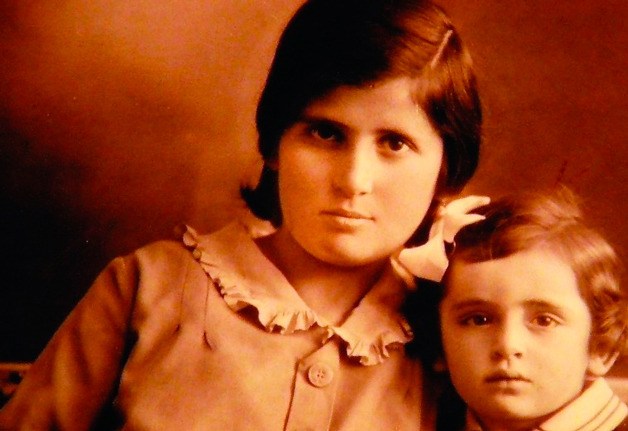Noémi Ban has lived through some of the darkest moments of this past century, from surviving Nazi genocide to life in post-war Soviet occupation.
At 91, her life in Bellingham is now dedicated to sharing her experiences in the hopes that such atrocities will never, ever, be repeated.
Her record of strength and forgiveness will be told during an assembly for the upcoming Martin Luther King Jr. Day holiday, at 10 a.m. Friday, Jan. 17, at South Whidbey High School.
Ban will share stories from her life in the Auschwitz and Buchenwald concentration camps, including her escape to freedom.
For Ban, sharing the worst parts of her life with others has a power — hearing it from a living person strikes home the message in a way a book never can.
“If you see that person who it happened to, it makes a lot of difference,” Ban said.
Ban’s story begins in Hungary, where she was born as the oldest of three Schönberger — her maiden name — children. After the Germans invaded in 1944, Ban, 21 at the time, and her family were split up. Her father was sent to a labor camp, while she, her mother, grandmother and two siblings were all sent to Auschwitz, perhaps one of the most famous concentration camps of World War II.
At Auschwitz, her family members were killed, but Ban survived after being transferred to the Buchenwald concentration camp four months after she arrived. At Buchenwald, Ban worked in a bomb factory.
In April 1945, she was forced to march to another concentration camp, Bergen-Belsen. While en route, Ban and 11 other women escaped, a tactic she would use again later. The group was found by the U.S. Army who had just liberated the camp.
She was able to return to Hungary in September 1945 and was reunited with her father. She married Earnest Ban, and became a schoolteacher.
Her family settled in Budapest, but after the Soviets came into power in 1948, Ban and her family tried to escape, fearing the growing anti-Semitism. On their second try they successfully entered Austria. Ban later immigrated to the United States and now lives in Bellingham.
Ban has since become an award-winning teacher and speaker, most recently receiving an Honorary Doctorate of Humane Letters from Western Washington University in 2013. Ban also has written a book about her life titled “Sharing is Healing: A Holocaust Survivor’s Story,” and in 2007 a film was made about her titled “My Name is Noémi.”
Freeland resident Kevin Lungren, a friend of Ban’s, said her personal struggle for freedom is, at its root, what Martin Luther King Day Jr. is all about.
“She has taken her life’s journey to a completely new level of forgiveness,” Lungren said. “She says if she has not been able to forgive, then the Nazis would have won.”
Lungren admired Ban’s ability to survive and is thrilled she is speaking to high school students.
“The horrific violence that was brought down on her and her family would crush most people,” he said. “She’s just found a way to forgive and move on. I like to use that as way to realize, ‘If she can handle this, I can handle anything.’ ”
Lungren said knowing Ban has taught him other lessons as well.
“I realized at some basic level that it didn’t make sense to have any enemies,” he said. “I didn’t realize how freeing it was to be able to forgive.”
Ban said terrible things are still happening around the world, and many people ask her what should be done.
“I always say in your own community give one smile,” she said. “That is the very first step to make sure it shouldn’t happen.”



